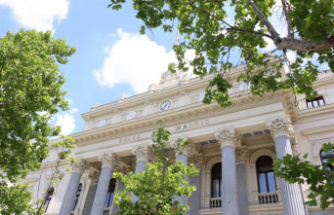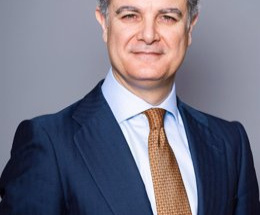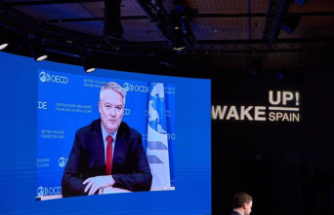The consumer price index jumped 8.1% in June in the country. This is the largest increase in the cost of living since January 1983. As far as automobile costs are concerned, the picture is even less encouraging.
"It's a tough test for consumers who have to pay a lot more for a vehicle and for fuel," said George Iny, director of the Association for the Protection of Motorists (APA).
As inflation hit 8.0% in Quebec last month, Finance Minister Eric Girard "sees that inflation is high in Quebec...and understands that rising prices are affecting Quebecers in their daily lives. »
The big culprit fuel
This exceptional increase is largely due to the increase in the cost of gasoline. You had to pay 54.6% more for fuel in June in Canada compared to last year, making the car bill much higher.
Besides gasoline, it costs more for a used car than for a new car. Inflation on the purchase of a vehicle amounts to 8.2% in June, a price effect "that we never thought possible", comments Mr. Iny.
The APA director is optimistic that the price of used vehicles will begin to fall again next winter, but he warns that “for new cars, we can expect sharp increases in 2023”.
Maintenance and repairs are also up sharply: 6.1%. A trend that could prove to be sustainable.
“Maintenance will increase because there is a huge shortage of qualified personnel, explains George Iny, and there is a very serious shortage of auto parts”.
Contradictory behavior
Despite much higher costs, the boss of the APA observes a "certain contradiction" on the vehicles purchased by Quebecers.
With gas prices on the rise, "you would think people would be making the switch to smaller cars, but right now that doesn't seem to be the case."
Fellow construction workers carpool and work overtime to cope with rising automobile costs.
“We work in construction, we walk from site to site, we take our car all the time every day. So the cost of gasoline means that we have less left in our pockets,” replies Léo Beauchemin, carpenter, when asked about the increase in gasoline prices.
The worker is sitting in his car, on a break, in a service station on the South Shore of Montreal, with his two colleagues. This is because they have chosen to carpool to save on the costs of their car trips.
Also limit wear
“With inflation, we carpool more,” explains Leo. We don't live in the same place, but we manage. We will park at a place halfway and we drive together to save on the cost of gas and the durability of the car, because there is wear and tear on the vehicle as well. »
Are they planning to buy a new car given current prices? This time, it's Pascal Gauthier, seated to the right of Léo, who launches: "I have a pick-up on order". It's a fuel-intensive vehicle, but the cement maker believes he needs it for hunting. Like many others, he is still waiting for his new car. And if it doesn't go into production very soon, the bill will go up.
"By August, I'm moving to 2023 prices," says the construction worker. That's a $5,000 raise, I think. They cannot guarantee the order price. Yet he still smiles. To make up for the raises, he and his colleagues will do "more overtime."
More 61.9% for gasoline
The increase in gas prices in Quebec in June was significant, to say the least: 61.9%. Yesterday, the price at the pump was $1.91 in Montreal. There was a slight decline in July, when prices exceeded $2 per liter in June.
New or used, it's more expensive
Inflation for the purchase of vehicles exceeds 8% year on year in the country. The effect of the pandemic, shortages of semiconductor chips and the increase in the cost of production equipment are at fault.
In the second-hand market, Le Journal reported a 25% price increase last May. The upward trend continues: plus 1.5% from May to June according to Statistics Canada.
New home prices follow the same curve: 1.6% increase from May to June.
Battle for mechanics drives up maintenance costs
Already on the rise with 6.1% inflation in June, we expect a continued rise in the price of automotive parts, maintenance and repairs.
According to George Iny, director of the Automobile Protection Association, the hourly price for a mechanic is currently "$125+" at a dealership, a rate that is expected to continue to rise as young, qualified mechanics run out. the call.
"It's a real battle to get mechanics," says Alain Blondeau (photo), owner of the Sonic garage in Saint-Lambert. The contractor is sometimes obliged to offer $8 to $10 more to attract workers. He says he had to increase his prices: 30% for tires, 20% for filters and oil, and a 10% to 20% price increase for changing brakes.
The end of the respite for insurance?
After marked increases in auto insurance premiums since 2015, lower claims frequency during the pandemic is leading to price stabilization in 2022. The latest data from the Groupement des assureurs automobiles indicates an average premium of $775 in 2021. to be continued, however: the cost of insurance could soon increase, to follow the increases in the repair of damaged vehicles.













